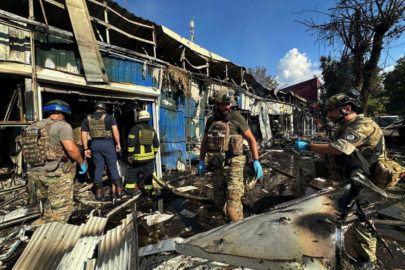Paratroopers from the German Rapid Forces Division (DSK) got an opportunity recently to test the new night vision goggles (NVG) that Germany is procuring together with Belgium.
The goggles are being delivered by Hensoldt Optronics GmbH (Germany) and THEON Sensors SA (Greece) under a contract from July 2021.
As part of the trials that are being carried out before the Mikron NVG can be delivered to the armies of Germany and Belgium, a team of specialists evaluated the system to see whether it is suitable for parachute jumps, in daylight and in the dark.
Staff sergeant Martin Müller is a consultant on the Rapid Forces Division for the so-called vertical movement, as dropping with the parachute is also called. Among his many tasks is the further development of the equipment of the paratrooper units. He was joined for the evaluation by Captain Heiko Niebus and Sergeant-Major Steffen Palmroth, who are responsible for operational testing of the MIKRON NVGs.
The new NVG offers multiple wearing options. As a rule, however, the soldier wears it directly on the combat helmet when deployed. For example, the new helmet of the Specialized Army Forces, which has already been delivered to the troops, offers the paratrooper the option of adapting the night vision goggles using a bracket attached to the helmet. Both the goggles themselves and the connection between the helmet and the night vision goggles must be able to withstand the pressure of a parachute jump.
Nuclear fusion: Scientists celebrate “important step” towards inexhaustible energy source (video)
In order to check that nothing comes loose even at falling speeds of up to 200 kilometers per hour, the special parachute platoon was tasked with first confirming that the system is properly integrated by performing different free fall jumps. Each of the jumps is video-accompanied by the examiners and meticulously evaluated immediately afterwards.
The interim result was very satisfactory, according to the German defense ministry. Both the new night vision goggles and the helmet were able to withstand the adversities of free fall. From the point of view of the examiners, the first goal on the way to clearance for the parachute jumps has been achieved.
Read more: Defbrief




































